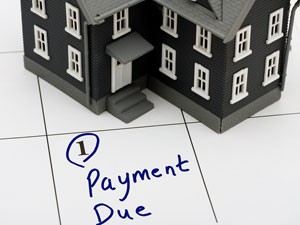What Happens If You Don’t Pay Your Property Taxes?
 In Chicago and throughout Cook County, many homeowners are struggling to pay their ever increasing property taxes, especially those seniors on fixed incomes and disabled individuals, as well as longtime residents of neighborhoods undergoing gentrification. More affluent homeowners may also despair of paying property tax bills that can approach six figures on high-end properties in exclusive communities.
In Chicago and throughout Cook County, many homeowners are struggling to pay their ever increasing property taxes, especially those seniors on fixed incomes and disabled individuals, as well as longtime residents of neighborhoods undergoing gentrification. More affluent homeowners may also despair of paying property tax bills that can approach six figures on high-end properties in exclusive communities.
Bad News, Good News
The bad news: if you’re tempted to skip a payment or pay late, there are consequences far worse than missing a credit card payment or neglecting to pay a utility bill – you could lose your home. This is an especially tragic scenario because people who pay property taxes directly to a taxing authority typically own their homes free and clear.
Property tax delinquencies in Cook County have reached a four-year high, with the county owed more than $127.1 million in back taxes for 2014, according to Dennis Rodkin’s March 22 article in Crain’s Chicago Business. Because every government agency in the State of Illinois is facing a budget crisis, you can count on Cook County to go after these delinquencies with every means possible.
The good news: there are two ways to reduce what you have to pay in property taxes.
Late Payment Penalties & Sales of Property Taxes
Cook County property tax installments are due on March 1 and August 1 or on the first business day of those months. If your installments are a day or more late, you will be charged 1.5% interest, assessed each month for the delinquency.
Any time after the second installment’s due date, your overdue taxes plus the interest penalty can be sold to an investor through the county treasurer’s annual tax sale—after you receive a formal warning notice. Though the specifics vary from county to county, this is standard practice in Illinois. It may seem unfair, but real estate tax revenue is needed to fund pensions, schools, hospitals, libraries, parks, and other critical public services.
Losing Your Home
If your taxes are sold at the tax sale, you likely will need to pay much more to regain clear title to your property—not only your delinquent taxes plus monthly interest but also the tax buyer’s interest plus fees. The individuals and organizations who buy tax liens as an investment often receive high interest rates—as much as 18% plus escalators. You have until the end of the redemption period, which typically ranges from 6 months to 2.5 years, to pay the tax buyer. If you don’t pay, the buyer can acquire legal title to your property.
Exemptions
The good news is that you may be able to reduce your property tax obligation with exemptions available to you. Senior citizens age 65 and older with annual household incomes of less than $55,000, disabled individuals, returning veterans, disabled veterans and longtime occupants of a property are all eligible for exemptions that reduce the equalized assessed value (EAV) of their homes. The most generous exemption is reserved for severely disabled veterans. A disability of at least 70% qualifies the veteran for a 100% property tax exemption.
Appealing Your Property Taxes
Whether you qualify for an exemption or not, you can appeal your property taxes—twice per year.
At Kensington Research and Recovery, we have the experience and resources to successfully manage your appeal. In over 15 years in business, we’ve saved more than 10,000 homeowners thousands of dollars each with our residential property consulting service. Our success rate is over 90%.
The best part: we can estimate your property tax reduction before taking any action based on running our proprietary algorithm on data we acquire directly from Cook County. If the reduction is compelling, we move forward. If not, we don’t. And you only pay a portion if a property tax reduction is obtained for you – there are no other fees.




 Over 90% Success Rate on Property Tax Appeals & Protests
Over 90% Success Rate on Property Tax Appeals & Protests No Up-Front Fees
No Up-Front Fees